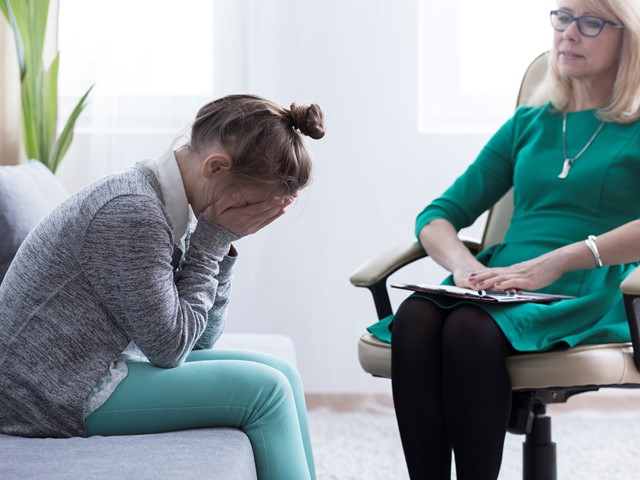Grief is a journey that accompanies the loss of someone or something deeply cherished. It is an experience that can shatter our world and leave us feeling helpless, overwhelmed, and emotionally fragile. Yet, within the depths of heartbreak, there is a remarkable human capacity for resilience. Resilience allows us to navigate the turbulent waters of grief, find strength in the face of adversity, and grow amidst our pain. In this blog post, we explore the powerful relationship between grief and resilience, and how we can harness this resilience to find healing, meaning, and growth.
Resilience is the ability to adapt, bounce back, and thrive in the face of adversity. It is not about suppressing or denying our grief, but rather embracing it and finding ways to integrate it into our lives. Resilience in grief does not mean that we are unaffected or that we simply “get over” the loss. Instead, it involves finding ways to carry our grief alongside us as we move forward. It is about building the strength to live a fulfilling life in spite of the pain we carry.
One key aspect of developing resilience in grief is the recognition that healing is not a linear process. Grief does not have a predetermined timeline, and everyone’s journey is unique. There will be days when the weight of grief feels overwhelming, and other days when we find moments of peace and acceptance. Resilience comes from acknowledging the ebbs and flows of grief and giving ourselves permission to experience the full range of emotions that arise. It is about practicing self-compassion and allowing ourselves the time and space needed to heal.
Finding support and connection is crucial in cultivating resilience during the grieving process. Surrounding ourselves with a compassionate and understanding community can provide comfort, validation, and strength. This can be through seeking therapy, joining support groups, or confiding in trusted friends and family members. Sharing our stories and experiences with others who have walked a similar path can foster a sense of belonging and remind us that we are not alone. The connections we make during times of grief can be lifelines that help us navigate the challenges and reinforce our resilience.

Resilience in grief also involves finding meaning and purpose in our loss. While it may seem difficult to fathom in the midst of heartbreak, our pain can lead us to new insights, perspectives, and growth. Through reflection and introspection, we can uncover the lessons that grief teaches us about the fragility of life, the importance of love and connection, and the value of cherishing each moment. This newfound wisdom can guide us toward a deeper understanding of ourselves, our values, and what truly matters in life. It can ignite a sense of purpose and inspire us to make positive changes in our own lives and the lives of others.
It is important to remember that resilience does not mean forgetting or moving on from our loss. It is not about minimizing or suppressing our grief. Instead, resilience is about finding the inner strength to carry our grief with us as we continue to live and honor the memory of what or who we have lost. It is about integrating our loss into the fabric of our lives and allowing it to shape us in meaningful ways. Resilience acknowledges that grief is a part of our story, but it does not have to define our entire narrative.
The journey of grief and resilience is deeply personal and unique to each individual. What works for one person may not work for another. It is important to be gentle with ourselves and to give ourselves permission to navigate our grief in our own way. This means honoring our emotions, allowing ourselves to feel the pain, anger, and sadness that arises, and seeking the support and resources that resonate with us. It may involve therapy, counseling, support groups, or engaging in creative outlets that provide solace and expression. The key is to find what helps us cultivate resilience and empowers us to move forward on our healing journey.
Grief and resilience can also deepen our empathy and compassion for others who are experiencing their own losses. Through our own struggles, we gain a profound understanding of the pain and challenges that grief brings. This heightened empathy allows us to offer support, kindness, and a listening ear to those who are grieving. It becomes an opportunity to connect with others on a deeper level and create a community of understanding and healing. By reaching out to others and extending a hand of compassion, we not only contribute to their resilience but also strengthen our own.
Ultimately, the journey of grief and resilience is an ongoing process. It is not a destination but a continuous exploration and growth. There may be setbacks and moments when our resilience falters, and that is okay. It is important to be patient and gentle with ourselves as we navigate the complexities of grief. Each step we take towards resilience, no matter how small, is a testament to our strength and courage. And with time, self-care, support, and the embrace of our emotions, we can find solace, meaning, and the ability to carry on amidst the heartbreak of loss with these tips from BibleKeeper.com.
Lastly, resilience in grief involves taking care of our physical, emotional, and spiritual well-being. Engaging in self-care practices such as exercise, mindfulness, healthy eating, and sufficient rest can nurture our resilience and provide a solid foundation for healing. Additionally, exploring spiritual or contemplative practices can offer solace, hope, and a sense of connection to something greater than ourselves. Whether it is through prayer, meditation, or engaging with nature, these practices can help us find strength, solace, and a renewed sense of purpose.
In conclusion, grief and resilience are deeply intertwined. While grief can leave us feeling broken and vulnerable, resilience offers a pathway toward healing, growth, and finding meaning amidst heartbreak. By acknowledging the non-linear nature of grief, seeking support and connection, finding meaning in our loss, and prioritizing self-care, we can tap into our inherent resilience and cultivate strength even in the face of profound loss. Grief may forever shape us, but it does not define us. Through resilience, we have the power to transform our pain into purpose and grow amidst the most challenging chapters of our lives.






